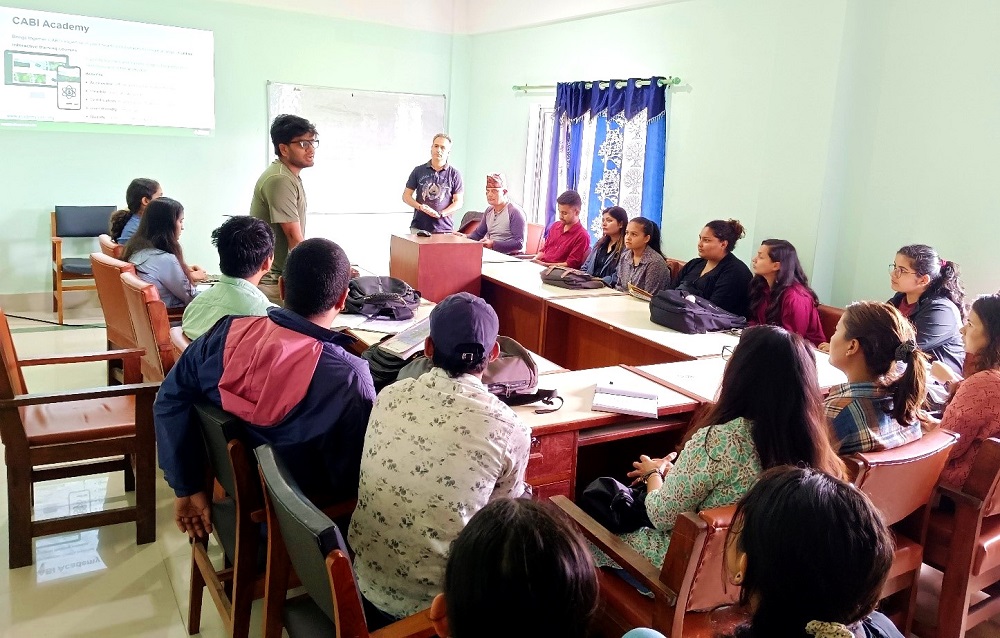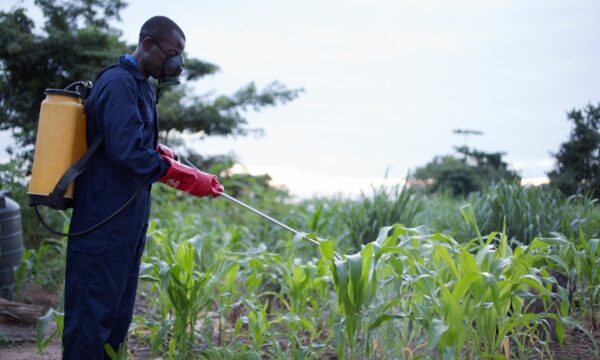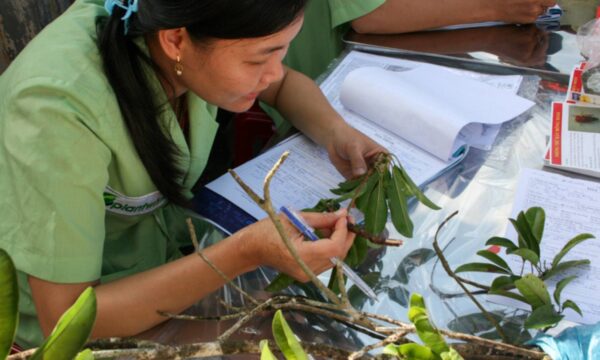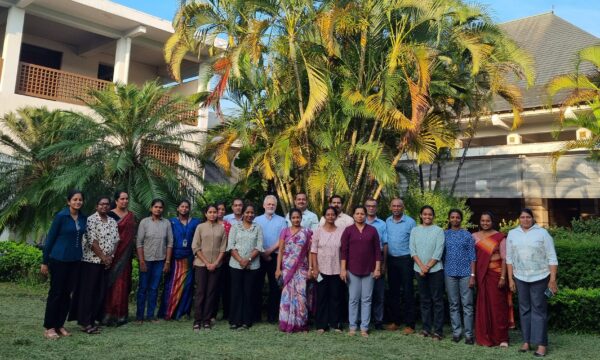
Gaurav Thakur, a student of the Institute of Agriculture and Animal Science, Tribhuvan University, Kathmandu, Nepal, writes here about CABI’s presentation of its digital platforms for plant protection and other agricultural applications.
The PlantwisePlus Toolkit was showcased recently to students at the Institute of Agriculture and Animal Science (IAAS), Tribhuvan University, Kathmandu, Nepal.
Dr Vinod Pandit, Programme Leader, Development Communications and Extension, based at CABI’s centre in India, led a training programme to more than 30 participants from the Entomology and Pathology departments of the IAAS as well as some undergraduate students from the College of Life Sciences.
The programme was hosted by Assistant Professor Kapil Kafle and Professor Krishna Kaphle, Postgraduate Coordinator of IAAS, attended as a guest.
CABI’s digital offering
Dr Pandit then introduced the CABI digital offering which encompasses website portals, programs, software, and mobile applications. These tools were explained in brief, highlighting their practical applications in everyday life of farmers and agro-dealers, policy makers, researchers, extensionists and students.
The PlantwisePlus Toolkit is aimed at agricultural advisory service providers and brings together a suite of digital tools to, ultimately, support smallholder farmers implementing sustainable crop production practices.
Tools include the PlantwisePlus Knowledge Bank, Plantwise Factsheet Library App, Crop Sprayer App, Fertilizer Optimizer Tool.
A demonstration of the Plantwise Knowledge Bank emphasized its usefulness for agricultural students and researchers. This open-access gateway provides practical plant health information and services, ranging from diagnostic and management advice to mapping of pest locations, along with customized alerts on pest news.
Dr Pandit further discussed other agricultural tools offered by CABI, such as the Fertilizer Optimizer Tool for fertilizer dose calculation, the Crop Sprayer App for precise pesticide application, and the Pest Diagnostic Stimulator game, designed to enhance users’ disease diagnostic and investigation skills in an enjoyable manner.
The CABI BioProtection Portal, which is an open access digital tool that enables users to find registered biopesticide and biocontrol solutions, was also demonstrated. With filters for country, crop and pest, users can easily source locally available bioprotection products for their pest problems such as bacterial wilt disease in rice crops.
The CABI Academy
The CABI Academy was then introduced and participants, who have completed online course, were invited to share their experiences.
Dr Pandit concluded his presentation by highlighting the uses of the Pest Risk Analysis (PRA) Tool. He mentioned that while the utilization of the toolkit is limited to member countries, the Plant Quarantine and Pesticide Management (PQPMC) office in Nepal has been granted access to it.
In response to a participant’s query about Nepalese students’ access to CABI scholar articles, Dr Pandit stated that students from this country can obtain access by consulting the PQPMC.
Working towards a ‘One Health’ approach
Dr Pandit further emphasized that CABI is also working towards ‘One Health’ approach in the agriculture systems, with the aim of achieving a sustainable balance in ecosystems. This approach recognizes the interconnectedness of human health, animal health, and the ecosystem.
During the closing remarks, Professor Kaphle added that he and IAAS have also been actively involved in One Health programs in Nepal. He reiterated that the ‘One Health’ approach is a collaborative effort aimed at achieving optimal well-being for individuals, animals, and the ecosystem. He further emphasized that Nepal’s acceptance and implementation of the concept are steadily growing, even though it is still in its early stages.
In his vote of thanks to the interactive session by Dr Pandit, Prof Kaphle, mentioned the ongoing research in One Health and the ecosystem biodiversity research, need, scope, and opportunities.
The Ayurveda-Agriculture and Veterinary One Health setup at Kirtipur PG Campus was also mentioned as an opportunity for research and integration in CABI-led initiatives. The experience of working with invasive alien flora and fauna species was also highlighted in his remarks and mentioned as a serious threat to Nepalese agriculture.
Dr Kafle, meanwhile, highlighted the importance of CABI Membership and emphasized that membership will be particularly helpful for the Nepalese research community to tap the benefits by freely accessing the high-quality research and publications. He also said it would be an opportunity to strengthen the research capacities in the field of plant protection.
Additional information
Main image: A student shares his experience of taking the Crop Pest Diagnosis course on the CABI Academy during the training session at IAAS (Credit: CABI).
1 Comment
Leave a Reply
Related News & Blogs
How do pest risk registers address the spread of plant pests in Africa?
Pest risk registers can help to solve problems in agriculture, addressing the growing global threat of plant pests. Moreover, changing weather patterns, led by rising temperatures, are causing them to reproduce faster and expand into new regions. In ad…
10 July 2025





Thank you, Dr.Pandit and Kapil sir, for hosting the program and providing me with a platform for blog write-up and publications.